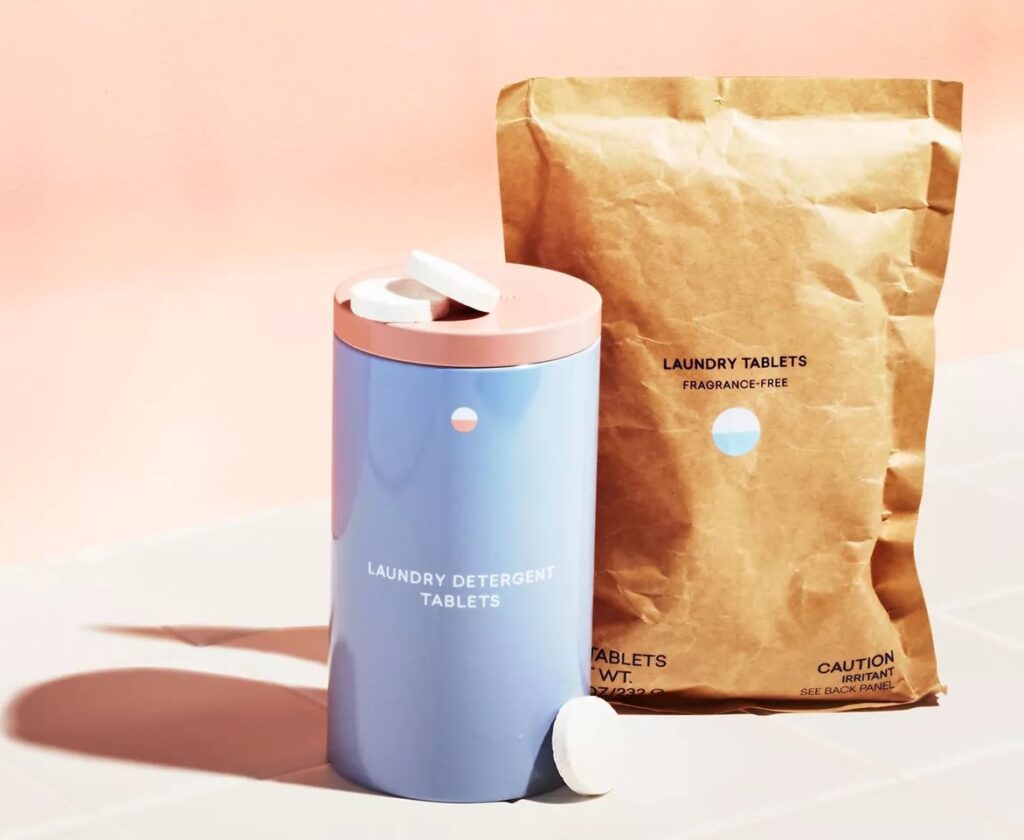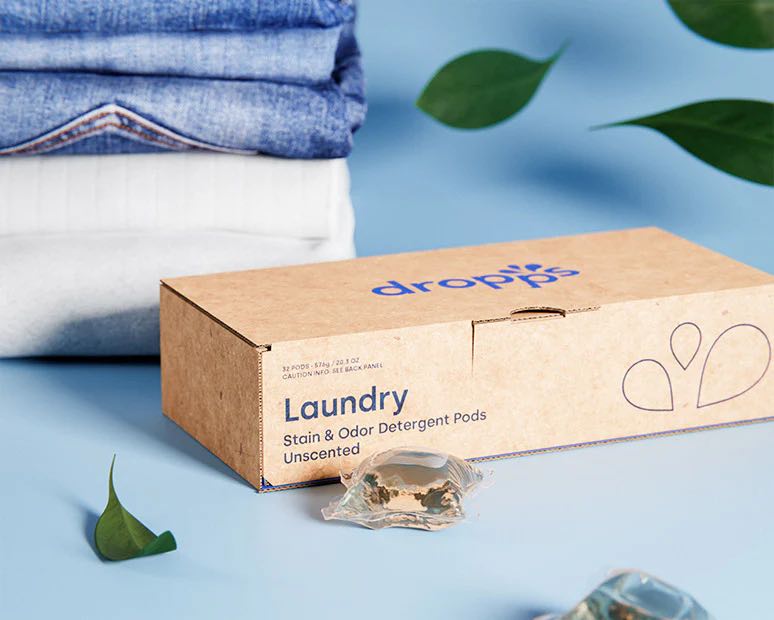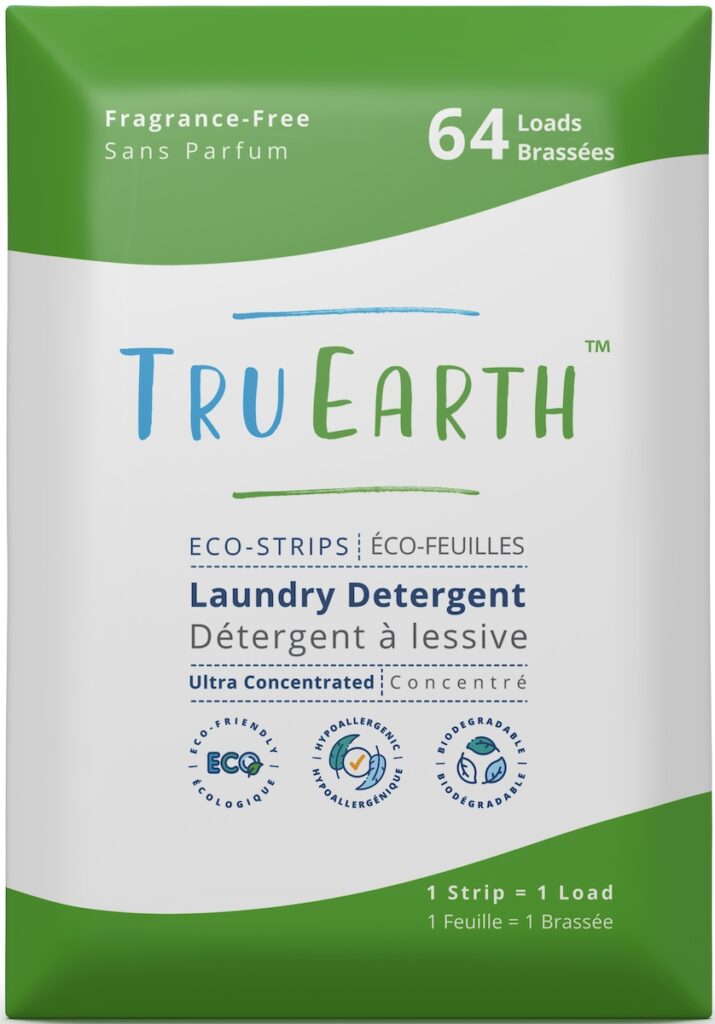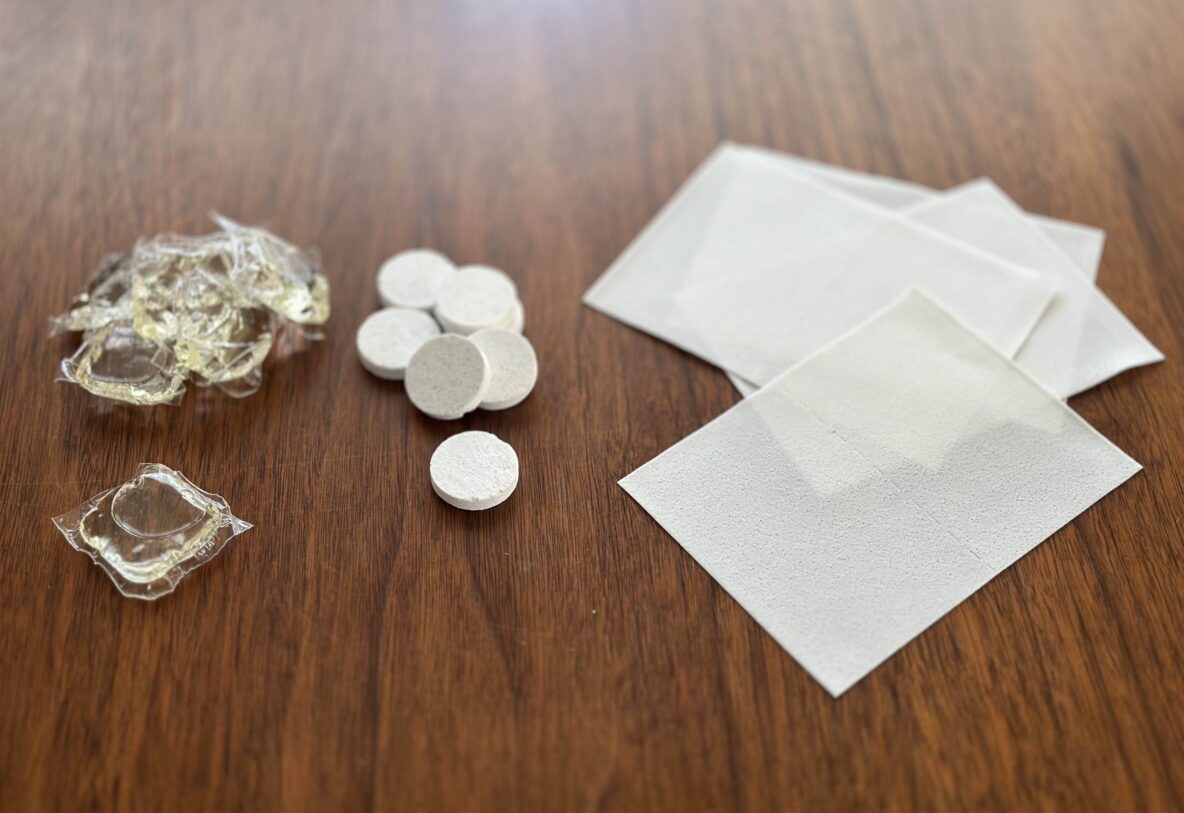In an effort to reduce plastic packaging and overall waste, I’ve been trying several different new eco-friendly laundry detergents in order to weigh performance, cost, and waste reduction between different brands and types of detergents.
I’m using three different types of detergent:
- Blueland Laundry Detergent Tablets
- Dropps Laundry Detergent Pods (liquid packets)
- TruEarth Laundry Detergent Sheets
Method
For these tests, I’m using our own front-loading High Efficency (HE) washing machine, one that uses less water and energy to get the job done. This makes a difference as the drum isn’t filled up with water as the older top-load models are, which means considerably less detergent is needed to get your clothes clean. I also add a tablespoon of distilled white vinegar to the fabric softener tray for each wash. This helps to increase the PH of the rinse cycle for better detergent residue removal and keeps the washing machine drum clean.
For anyone wondering, I have not been compensated, given free products, or otherwise reimbursed by or any of these companies, and purchased all of these products personally and anonymously without a discount. To be honest, I doubt these companies even know who I am or that I ever conducted this test.
Blueland

Overview
Cost- Refills cost $21 for 60 tablets*, which comes out to $0.35 per load
Pros
- Most eco-friendly (minimal processing energy, lower shipping weight)
- Fully biodegradable, no waste in packaging or product
Cons
- Doesn’t always dissolve fully
Dropps

Overview
Cost- Refills cost $26 for 64 pods*, which comes out to $0.41 per load
Pros
- Formula specific for athletic (synthetic) clothing
- Effective cleaning power
- Shipping and product packaging is integrated and minimal- designed well for home delivery waste-reduction
Cons
- Liquid form (heavy to ship)
- Encased in synthetic petrochemical-based Polyvinyl alcohol (PVOH or PVA) pod (which may not be fully biodegradable)
TruEarth

Overview
Cost- Refills cost $39.95 for 64 sheets*, which comes out to $0.62 per load
Pros
- Lightest and smallest size of the bunch
- Shipping and product packaging is integrated and minimal
Cons
- Most expensive per load
- Also uses synthetic petrochemical-based Polyvinyl alcohol
Results
Even though I have had some rare occurrences of tablets not fully dissolving, my preference here is for Blueland based on the overall environmental impact and negligible performance differences. It is nice that Blueland also is less expensive than the alternatives, and certainly plays a part in my preference over TruEarth sheets. I’ve been impressed with their products and have expanded my household to also use Blueland’s hand soap and am especially fond of the powder dish soap.
Ultimately a big part of what makes a product eco-friendly is what impact it has (or could have) on the planet. The big question in my mind is: what is the real-world impact of Polyvinyl alcohol on the environment? Unfortunately, the answer is we don’t yet know, and due to influential industry and trade groups, we may never fully know without good, independent, peer-reviewed research. Don’t get me wrong, these products are a huge step up from the plastic jugs currently clogging shelves in the laundry aisle, but until we know that PVAs biodegrade fully and safely in real-world situations, I’m going to recommend (and myself use) a product with known impacts.
*Prices are from on published website retail prices at last check on January 27, 2022
